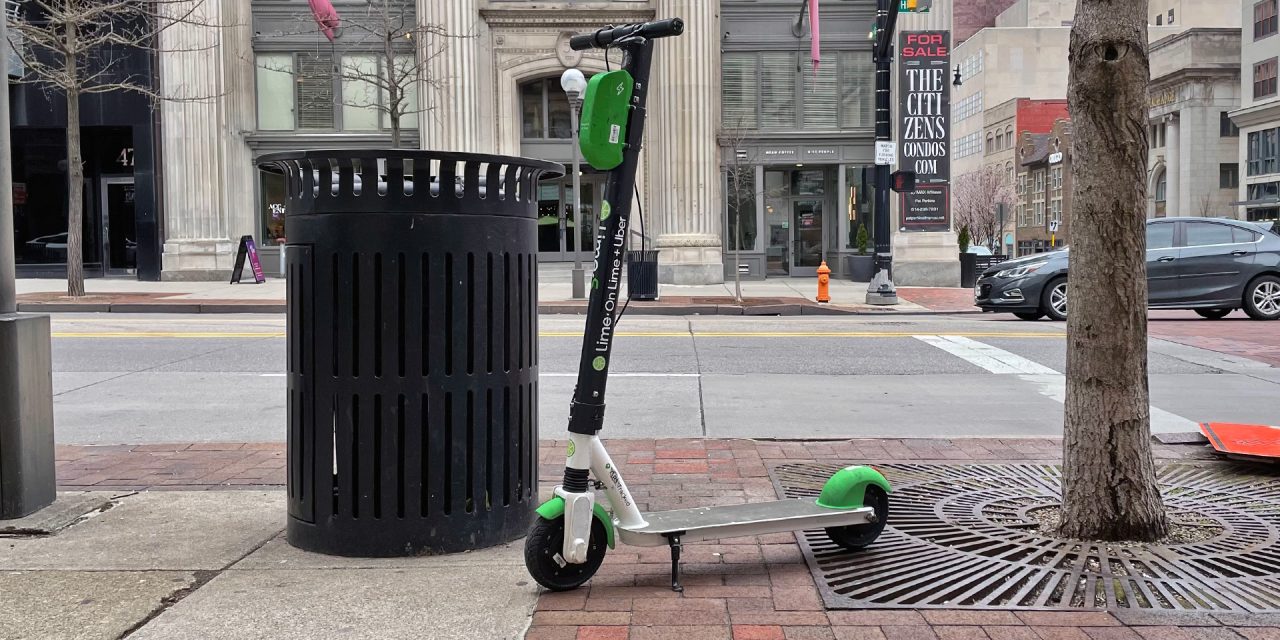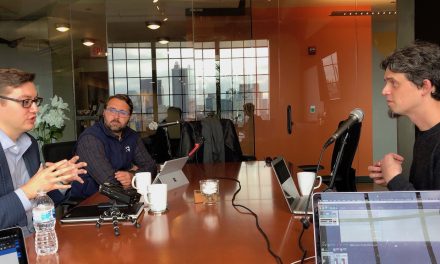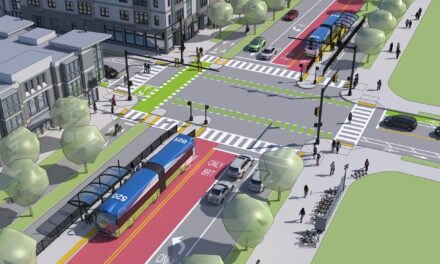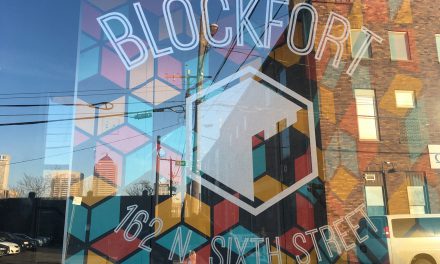Podcast: Play in new window | Download
Subscribe: RSS
Tim Fulton 00:12
Ladies and gentlemen, welcome to the confluence cast presented by Columbus underground. We are a weekly Columbus centric podcast focusing on the civics, lifestyle, entertainment, and people of our city. I’m your host, Tim Fulton. This week. How should scooters, ride hailing apps and car sharing services be considered in the conversation about alternative transportation? Can we think of them as a public good when they are for profit entities? Columbus underground reporter Brent Warren discusses the options for last mile transit that exist in Columbus, how they came to be, and the motivations and incentives for the companies that get us from point A to point B. You can get more information on what we discussed today in the show notes for this episode at the confluence cast.com. Also, the confluence cast is on Patreon. Find out how to support this podcast on our website, the confluence cast calm or at patreon.com/confluence. The confluence cast is sponsored this week by the Central Ohio transit authority or Kota. It’s time to shake up your commute and roll with coda. Getting started is easy. Just go to your app store and search for transit. Download the transit app and set up your quota account. With the transit app. You can plan track and pay for your quota rights. You can download transit today. Enjoy the episode. Sitting down here virtually with Columbus underground reporter Brent Warren. Brent, how are you sir?
Brent Warren 01:51
I’m good. How are you?
Tim Fulton 01:53
I’m doing well. Thank you. We are talking today about alternative transportation in Columbus. We’re going to get a little bit into the numbers and how things work. Specifically we’re talking about scooters, we’re talking about single use rental cars. Is that how you refer to that?
Brent Warren 02:13
Yeah, free floating car rental cars, yes,
Tim Fulton 02:17
bicycle rentals, that sort of thing. So Brent, first of all, this is your specialty that’s in development at Columbus underground. Can you talk through a little bit about what we have available here in Columbus, and when did it come to be?
Brent Warren 02:35
Sure? Well, right now we have lots of scooters. I think most people who live in a central city neighborhood and Columbus, they see him around, you know, they’re, they’re everywhere. And those came scooters first came in this summer of 2018. Bird was the first company to arrive. And they they just sort of came and you you saw this in a lot of cities all over the country. They dropped off like hundreds of scooters onto our streets, and they hadn’t really checked in with the City of Columbus. Right where they did that. You know, we can talk more about that.
Tim Fulton 03:13
I do want to interject there that it’s funny because I someone at the city at the time, referred to it as Yeah, they just came and did it. And then they went on an apology tour to let everybody know, yes, we’re here. And what do you need from us in order to stay here?
Brent Warren 03:30
Right. And that’s what they did. And I mean, I think the timeline is they came that summer. And then by the fall, the city had sort of crafted some rules and regulations. And they passed legislation and they came up with kind of a, a permitting system. So now there’s like four different scooter companies operating in Columbus, and they all have to report to the city, they have to give them the numbers, how many people are riding them, they have to make sure that there’s offering the scooters, not just in the short north and downtown, they have to be in like parts of Linden and the Near East Side and Franklinton as well. And the city has a you know, they have people who track that stuff now. Right. So that was 2018 that they started and then the regulations came soon after that. It seemed like a big thing when it happened because at least in the transportation world, we’re not used to like big things like that just happening usually. There’s less of planning and like, like discussion and meetings about things, but they just kind of did it, you know? Yeah. And they like you said they kind of did an apology to her. I mean, I remember in those early days I had sent an email I don’t remember which scooter company it was but just looking for, you know, some information to one of their press people. And they got back in there. The first line was we are looking forward to working with the City of Phoenix on this you know Just shows like they were doing this all over the country at the same time. The scale of it is just crazy. And, you know, my understanding is that and I think, you know, some of you know a little bit more about this world, too is this was like venture funding capital that was making it possible. I, I understand.
Tim Fulton 05:20
Well, and, you know, move fast and break things, right is a very common phrase, I would encourage anybody who’s interested, there’s a new show on Showtime about Uber, when they first started getting extra venture capital, and how basically, it empowered them to break the law, that they can now afford to break the law. So let’s the regulations that came along pretty quickly, there was rules about where you could ride, right? Yeah,
Brent Warren 05:51
where you could ride. One of them was that you are not supposed to ride on the sidewalks, which, of course, we still see lots of people riding on the sidewalks, but officially, that’s not permitted. And like, you know, like I mentioned, the, the, the city wanted to make sure that all different neighborhoods, were getting a chance to use these things, if they wanted to which the companies, if they if you don’t have that kind of requirement, they’re gonna go like, basically right around where the college students are aware of this. Yep, you know, Short North downtown, and that would be it. But actually, they did, I wrote a story in the spring of 2019. People in Franklinton, started noticing that, all of a sudden, they weren’t allowed to ride bird scooters, or to rent them in in their neighborhood when they had them before. And then it turns out that bird had shrunk their home area, so that their footprint base footprint, yes. So including, like, people in Linden, or the Near East Side, all of a sudden, could no longer get scooters there, either. So I started hearing about this, and I reached out to the city and to bird. And you know, a few days later, everything went back to it to the way it was. But you know, basically, the scooter companies are, my impression is they’re going to get away with what they can. And I don’t know, they actually are testing every once in a while, like, let’s see, if we do this, if anybody notice as
Tim Fulton 07:23
well. And that’s a big part of this space, too, is you know, you move a button or you make a button have rounded corners to see if you can get folks to behave in a different way that’s more aligned with your profit model. And I think a big part of this a big part of this discussion, is the acknowledgement that transportation at its core is a public good, right. And that’s why our tax dollars pay for things like coda. And we are dependent on and there’s there’s trade offs here, right? It’s both good and bad. We are dependent on for profit entities, providing our what we sometimes refer to as last mile transportation, whether that’s a scooter from a bus stop here to your doorstep, or a bicycle along the Scioto mile, like these are companies that some are receiving incentives from the city, but at their core, they are for profit entity, right?
Brent Warren 08:24
And, you know, obviously, in Columbus, we saw the main sort of one of the big issues with that relationship with cargo. Because you know, the if people aren’t familiar with cargo, they were here they had the little two seater cars, blue and white cars. And they were in Columbus from I was actually surprised how long it was it was from late 2013 to May of 2018. Okay, pretty good chunk of time. And I, you know, I talked to not an insignificant number of people who said Cartago is nice, because it allows us like me as a family to only have one car. Because it just has, it’s a sort of a nice safety valve. If I need a car for some reason, like, once a week, or once every couple of weeks. It’s there for me. So right I don’t have to buy a whole nother car, I can just have kind of a Cartago is like that. Basically, the same model is scooters, you know where it’s free floating, you just find them on an app and you go get them it’s a one way trip. So you just pay for when you’re when you’re using it and then you park it. The city has, uh, they worked out a deal with the city where they can park it on, you know, public parking spaces, right? So there’s something that worked for a lot of people and then all of a sudden it was gone. The city couldn’t do anything about it. Cartago said that when they left they said oh, the numbers just aren’t there in Columbus, but then Cartago itself completely folded up within, you know, a couple months after that. So they’re not even operating in North America anymore. Surprise, surprise. Right. Right. So that’s, that’s an example of what you’re talking about. Like people come to life On this service, and this sort of this thing that fits, helps to live in a place like Columbus where there’s not great transit. Mm hmm. But then it just disappears overnight.
Tim Fulton 10:12
Yeah, and it’s for, to an extent it’s an adoption issue. I think cargo is an issue of, it’s a capital intensive, right type business model where you’re buying cars that people are using, and sometimes they get into accidents, right. And I wrote in them, they were fine. Like, they got me from point A to point B. Also, there’s there was a subscription model, I thought they did a really good job of looking for different avenues for people to use it, where you as an individual could do it. They reached out to companies and said, Would you like to provide this offering to your employees? But they just, you know, they couldn’t make it work all the way?
Brent Warren 10:55
Right. And you know, the update then is we have a new company now, on the streets. It’s called free to move. I see. Have you seen them around town yet?
Tim Fulton 11:05
I don’t think so.
Brent Warren 11:06
I’ve seen a few of I mean, I’ve been looking for him, but I have seen a few of them. They are not little mini cars, they’re full. So they’re like, small SUVs, I think okay, Jeep renegades, maybe one of the the smaller Jeep models, okay. And it’s exactly like Cartago. In terms of the model, you know, they’re spread around the city, they have a deal worked out with the city where they pay the city something in exchange for use of either metered spaces, or just like on on street free parking spaces. So you just park it wherever you can find a public spot. And it’s just like the same as the Cartago model. The cars are bigger, you can actually fit four people into them, and you can fit stuff in the back too. So that that’s the main difference. But there it’s another I think it’s a maybe a European company. But it’s another company trying to get into this market and do the same kind of thing that car to go did.
Tim Fulton 12:09
I mean, it’s a shared transport. Yeah, absolutely. Yeah. And then you have done basically freedom of information requests with the city, because we require now these companies like scooter companies and cargo, the bicycles to report like, what what is the usage look like? I assume there’s some that’s maybe how they’re taxed. But what what are those numbers telling you?
Brent Warren 12:39
The numbers are pretty big. I mean, I started looking into that will I think since the beginning, I tracked it for that first, you know, six months in 2018, and then 2019. And then 2020 was a very weird year, obviously, for lots of reasons. But yeah, go to a scooter companies, a lot of them just shut down completely the beginning of the pandemic, okay, which is another, you know, another thing you could point to, like, coded and shut down completely. Right. And actually, the kogo bikes, which is kogo, you know, that’s the rideshare, the bike share system that has the docks, the little stations all over town, and that one is sort of a partnership, there’s a private company that runs it, but the city actually owns the bikes and the equipment and everything. So that’s a little, half and half, but Coco kept going directly throughout the whole pandemic. Um, but anyway, sorry, you asked about the numbers. Just the usage. Yes, the usage, like so last year, I just did an article on this where I tallied up all the scooter rides for 2021. And there was almost a million rides taken in Columbus. Okay. And that’s more than there were in 2019. Similar to the levels, we saw, I think, a little less than what we saw in the very beginning that the first you know, second half of 2018. But I mean, just to give you a sense of what that means, that’s like, maybe around 2000 trips a day 2600 trips, on average, every day. Oh, I can in Columbus, so I mean, obviously it’s it’s weather pendant very much. Yeah. So in the summer, it’s gonna be way more than that, in terms of how many trips people are taking a day by a scooter in Columbus. But it’s, it’s I think most people might be surprised at how big of a number that is.
Tim Fulton 14:38
Absolutely. And I mean, I write it from time to time, I will say I honestly write it more. When I’m in another city. You know, if I don’t want to rent a car, it’s just the easiest way to get from, you know, one side of a neighborhood to the other one, but here, the virtue is the time at places Like the new Crew Stadium or at Huntington Park, where you know, you don’t want to, you’re not gonna hop in a cab, you want to get some somewhere, quickly. And this is my totally just old man complaining, please just have one person at a time on your scooter. And please don’t ride them on brick streets. You will fall, something will happen. Yeah.
Brent Warren 15:26
Well, you know, I live in the university district. So I see anything you can imagine. With those scooters, you know, they push them to the limit limits, especially college students. Oh, absolutely. Yeah,
Tim Fulton 15:38
absolutely. So what’s interesting to me here is that there is some sliding scale of partnership with the city, right? Where the scooters, there’s not they don’t need to dedicate any infrastructure, they don’t need to worry about where they’re going to park, they just need to make sure that they’re first of all, making sure they get paid for the money generated in the city. And also that people are safe. So they put together legislation around that. And that’s that model. Whereas with Cartago, yes, there’s a parking space issue, but also when Cartago came, that was a real partnership in that the city offered dedicated parking spaces just for those cars. I don’t know if that’s going to continue with the new rideshare. But that’s a whole nother thing.
Brent Warren 16:30
You mean with cargo? There was actually spots that were only for the cargo? Correct. Okay, I forgot they were few
Tim Fulton 16:37
and far between Yeah, they almost felt like staging areas for the beginning of the day. For those cars. Additionally, we would be remiss if we weren’t talking about the fact that we have Uber and Lyft here, that’s another alternative transportation method. I think that that gets covered. If you want to know about it, watch the Showtime series. Again, it is it
Brent Warren 17:01
is crazy to think of how new Uber and Lyft were at one point. Yeah, now it’s just sort of like, nobody gives it a second thought. It’s just what is always been, it almost feels like you know, it is
Tim Fulton 17:13
totally ubiquitous. And like the fact that I was thinking the other day about this job I had five years ago how I used to get food delivery from the same place every day. And I was like, Why did I do that? And I was like, oh, DoorDash didn’t exist, or like UberEATS didn’t exist. It just wasn’t a thing. And it’s, you know, you you understand, and I understand that, like, I try to explain things to my daughter of this is the way things used to be like I tried to explain to her what a videotape was the or excuse me, what Blockbuster Video Oh, and even the DVD portion of it. She was like, that doesn’t make any sense. Why would you go somewhere to get a movie to watch? Yep. So back to the conversation about the partnership, but the bikes there is sort of this. The city is a little bit more involved. Right. Like, yes, you said that they own the bikes, but that provided by and maintained by this private company. Right.
Brent Warren 18:14
And I and the city’s sort of is involved with deciding where the stations go, and you know, all that, all that stuff.
Tim Fulton 18:23
Yeah. Yeah. And there, one would think are being equitable about that placement and looking at where it can benefit the most people. What are the are there other companies or methods coming coming around?
Brent Warren 18:42
Well, there is I wrote, let’s see, this was last year, I believe I wrote about a local company that is trying to get their own bike share system off the ground, and they want to do it in Columbus. I think they’re also looking in some other cities. They mentioned Cleveland, when I talked to them. Their name is trip. I think trip bikes are just trip. But they they have a cool kind of model. And I’ll be curious when I talked to them last year, they said 2022 was their target for launching. So sometime this spring. I haven’t talked to them recently to find out if they’re still on that schedule or not. But when I talked to them then they were optimistic about it. And they have it’s all e bikes, which Koko also has some E bikes now actually, a lot of their bikes are anytime you see a kogo bike with the pink wheel that you bike so it makes it easier to ride basically
Tim Fulton 19:44
gotten for those that haven’t ridden it. It you do still have to pedal it just kind of the battery kind of helps. Yeah,
Brent Warren 19:51
it’s a pedal assist, they call it Yeah, and yeah, I think they’re pretty fun. When I first wrote an E bike, I was like, Oh, I get it. I understand why people like that. faces, especially if you do a lot of urban riding where you’re stopping and starting a lot, it really makes a difference to have that little assist from a bike. Gotcha. But the local company, they have kind of a different design of a bike. There have really thick wheels, they’re super comfy, I got to ride on one they have, they actually have a little bit of a throttle. So you can actually get a little, a little jolt of speed without pedaling. Okay on them. So they’re a little more like, like what you would think of as like a motorbike or something. But yeah, they still look basically like a bike. But they’re just trying to rethink the model a little bit. And I think it’ll be interesting to see if they can make a go of it. Because this is a space where it’s been all of these national, Silicon Valley based companies. And here’s this Columbus based company saying, Oh, I think we think we can do something a little bit differently. And we can roll it out here first, and we’ll see if it works. So I’m curious to see how that how that goes for them.
Tim Fulton 21:01
Well, and from a just to talk about the business model and sort of ownership, those come at least best. I know. A lot of the scooter companies were small startups, and then ended up being acquired by folks like Uber and Lyft, and transportation companies that basically knew this space. Yeah, you know, that’s, frankly, kind of the name of the game in startups is like, you either go public, or you get bought. And the you know, you kind of have to be an omnibus type company in order to go public. So it’s having that exit, as it’s called, is a good thing. So, and then we have lime bikes to correct
Brent Warren 21:49
Yeah, lime has had by actually line bikes first came to Columbus right before the scooters did. So they’ve okay here for a while. They also, I think they started out they were like in Dublin and a couple other places, but I don’t I don’t think they’re still in Dublin. But yeah, lime bikes, they have the E bikes also. And it’s a free floating service. So it’s just like the scooters. There’s no station or anything, cost a little more to ride a bike than it does a scooter. But yeah, that’s the same thing. You find them on an app and you go get it.
Tim Fulton 22:21
Got it. It’ll be I mean, I don’t think we’re in a transitional phase anymore. Here. I think that this is sort of, you know, how it’s gonna be. And I’m always looking for innovation, but I don’t see anything else coming down the pike really, in this way for providing that last mile of service. But it’s I mean, it’s fantastic that we have it. Yeah. In addition to a, as we talked about, with Josh lap a couple weeks ago, an ever evolving transit system that is fully a public good.
Brent Warren 22:55
Sure. Yeah. No. And actually, I think that brings up a good point, because my, one of my big things that I’ve been sort of keep trying to keep an eye on with scooters is because when they first started on the first sort of descendant on all of our cities, I heard some people say, like, oh, maybe this could be a good thing. If you have all these scooter riders, maybe that creates a larger group of people who will advocate for things like protected bike lanes, better trail systems, because scooters, I mean, they’re different than bikes, but they, they are as similar in that you would rather not have them on the sidewalk, where it’s illegal to have any of them blocked. And if for safety, you’d rather have them separated from cars, you know, that’s a good point. So like this, this idea of you have a kind of constituency for protected narrow lanes that can hold scooters, or bikes or whatever else, what other ever kind of thing that they come up with next. It seems to me like that’s something that could be promising. Although in Columbus, we haven’t really seen a lot of progress on that front lately, but maybe it’s still to come. Who knows?
Tim Fulton 24:10
Yeah, I mean, it’s a we will see and I don’t, I would like to try and blame our climate that we have cold, wet winters for this not working out. But I mean, it’s like two weeks a year that it’s like, yeah, totally not okay to get a bike.
Brent Warren 24:28
Also, I gotta say when you start looking at like what other cities are doing like, Minneapolis is one of the great bike cities and country and they’ve done it. They have much worse winters than we do. They have a great network, you know, protected lanes off street trails. And then I just wrote an article last week about I was talking about the downtown plan that’s coming up in Columbus and looking at something that they did in Calgary in 2015, which was they started to they just sort of implemented a protected bike lane network in their downtown? Yeah, on a temporary basis, they just did it right away. And then they sort of tweaked it as it went along. But that’s something you know, Calgary obviously is a lot colder than Columbus. And it had some success in building out these kinds of networks for bikes also so
Tim Fulton 25:21
well, and what they do, so I spend a little time in Calgary every day for work. And what’s interesting is at given times of day, if it’s basically if it’s not rush hour, they just shut down the air all the side streets, for pedestrians and for bicycles.
Brent Warren 25:44
So in the downtown area, yes.
Tim Fulton 25:47
Yeah, the through ways are open, and you can get anywhere that you want to. But streets like gay street downtown, it just would, it would just be closed, like there’s just no, in their mind, there’s no need for this to be there. And they made extra room by getting rid of the parking, because they don’t want people parking downtown. And if they want to park downtown, they should pay for it. Right. So yeah, lots of interesting models there in terms of a planning perspective. So we I, you know, transition is happening, and hopefully we get there. Yep. Yeah. So cool. Brent, I wanted to give you the opportunity, even though you’re a reporter, and every episode by asking, What do you think Columbus is doing really well. And this can be in the context of our conversation or not? What do you think Columbus is doing really well? And then following that up with what do you think Columbus is not doing so well?
Brent Warren 26:43
Well, I always say like when it comes to bike infrastructure in Columbus, like the city of Columbus has done actually a great job over the last like, I don’t know, 10 or 20 years of building out the sort of river trail system, the central Ohio greenways. You know, there’s some, some people who just have been slowly plugging away, filling in the gaps, making it a really pretty amazing system. Now, there’s still gaps to it. But they’ve, they’ve sort of quietly been making progress on that front to the point where he can, you can hop on a bike and go out to, you know, big Darby Metro Park and be on a trail the whole time. I mean, there’s some pretty good rides that you can do. So I always give credit to Columbus for that. Now, when you look on the on street side, that’s where I think we’ve just fallen behind our any sort of pure city that you can look at. We just haven’t made any progress on that. I mean, there was momentum under Coleman, but that’s been a long time since I was mayor. And not much has happened since then, in terms of, you know, specifically, what everybody seems to agree is that you need protected bike lanes and you need a network, you need it to connect up to things and we haven’t made a lot of progress on that. There’s some hope. Maybe the downtown plan up represents an opportunity to to do something about that. So we’ll see. We’ll see what happens with that. I’m looking forward to finding out
Tim Fulton 28:16
Yeah, great. Brent, thank you so much for your time. Sure.
Brent Warren 28:19
Yeah, no problem. Thanks for Thanks for having me.
Tim Fulton 28:28
Thank you for listening to the confidence cast presented by Columbus underground. Again, you can get more information on what we’ve discussed today in the show notes for this episode at the confluence cast comm. Please rate, subscribe, share this episode of The confluence cast with your friends, family, contacts, enemies, your favorite commuter. If you’re interested in sponsoring the confluence cast get in touch with us. We can be reached by email at info at the confluence cast calm. Our theme music was composed by Benji Robinson, a producer is Phillip Cogley. I’m your host, Tim Fulton. Have a great week.





